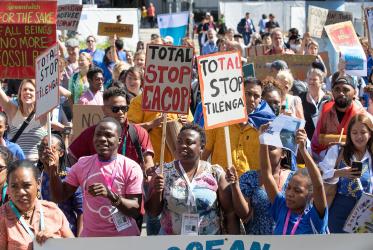Displaying 1 - 20 of 81
17 April 2024
WCC, WHO commemorate 50 years of collaboration
04 April 2024
What can churches do to prevent modern slavery?
22 February 2024
Ellyanne Chlystun-Githae Wanjiku to COP28: “listen more to children”
13 December 2023
WCC webinar explores decolonizing beauty
11 December 2023
ACT Alliance general secretary: “equity is not negotiable”
26 September 2023















